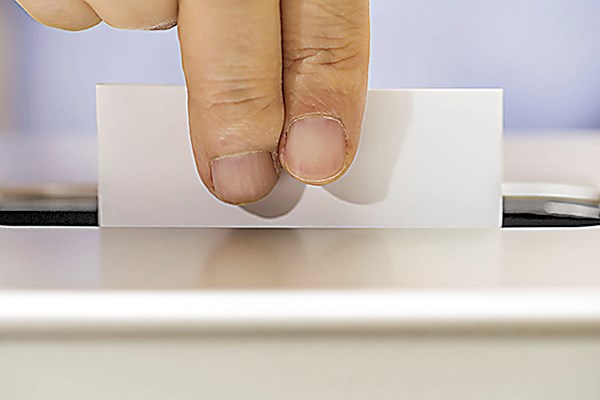Jack Poirier
When residents head to the polls on Oct. 19 they will cast their first ballots under the new Fair Elections Act.
Bill C-23 contains rule changes the Harper Government says will combat voter fraud and update campaign finance laws.
Critics warn the bill makes it more difficult to vote, especially for First Nations people, seniors and the homeless.
Most residents won't notice a difference, said Elections Canada spokesperson John Enright, noting voter identification rules have been in place since 2008.
Ensuring you are on the voter registration list is the first thing voters must do, Enright said.
"They should be visiting elections.ca to ensure they are registered. You have to be registered to vote."
Once registered, voters must bring proper identification that includes both their name and address to the polling station.
The most common ID that satisfies that requirement is a driver’s license or provincial/territorial ID. However, for the 15-to-20% of eligible voters who don't possess such cards, it gets trickier.
Two pieces of identification are also acceptable, provided one shows your name and the second your address. About 50 such pieces of identification are listed on the Elections Canada website, Enright said. For example, a health card and a phone bill would work.
The Fair Elections Act has eliminated the vouching option, but does allow for an attestation process that lets voters take an oath at the polling station to verify their address.
But, you must still bring two pieces to confirm your name and have someone attest to your address. That person must have proof of their own identity and address, and be registered in the same polling division.
The voter information cards that come in the mail can’t be used to corroborate your identity, unlike the 2011 federal election. Voter cards will be mailed out beginning the week of Sept. 21, Enright said.
Once registered, people can vote as early as today at their local elections office, Enright said.
And for the first time, Canadians can vote at an advanced poll on a Sunday, which falls on the Thanksgiving weekend.
Under the Fair Elections Act, the spending limit for candidates has increased.
Each party running a full slate of candidates can spend up to about $25 million on a typical five-week campaign, or an average of about $100,000 per candidate.
But the spending limits increases by 1/37 each day that a campaign exceeds 37 days. Given this campaign is 11 weeks, it effectively doubles the spending limit and potentially doubles the amount that parties and candidates can be reimbursed by from taxpayers.
The Journal had to contact Ottawa to get a rule change explanation. The local Elections Canada returning officer passed our questions to a regional field liaison officer, who directed them to the Ottawa media relations department.
There have been "so many changes since the last federal election,” the liaison officer said.
